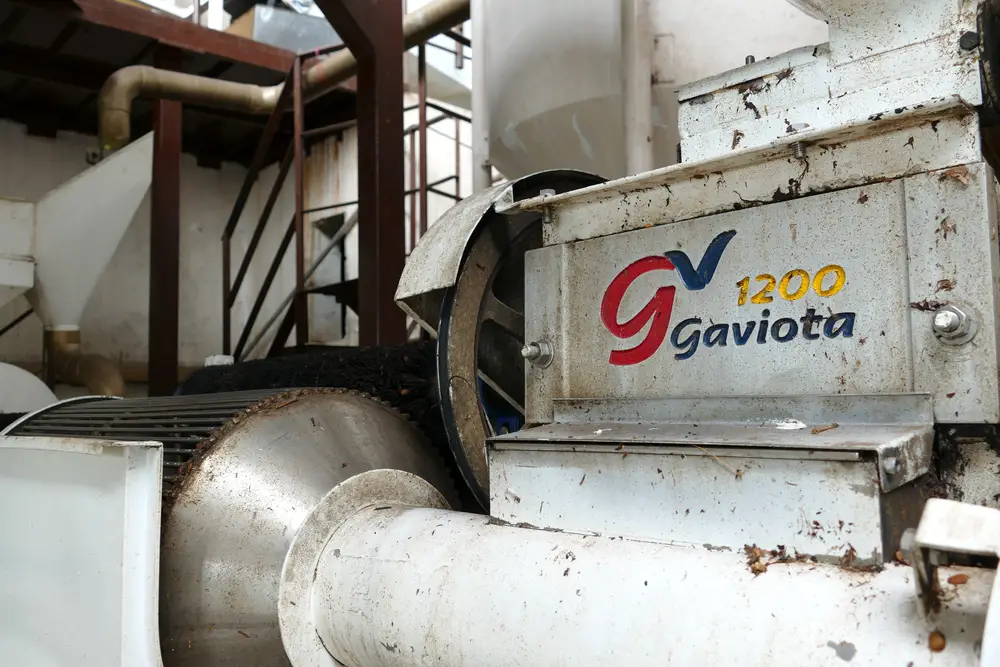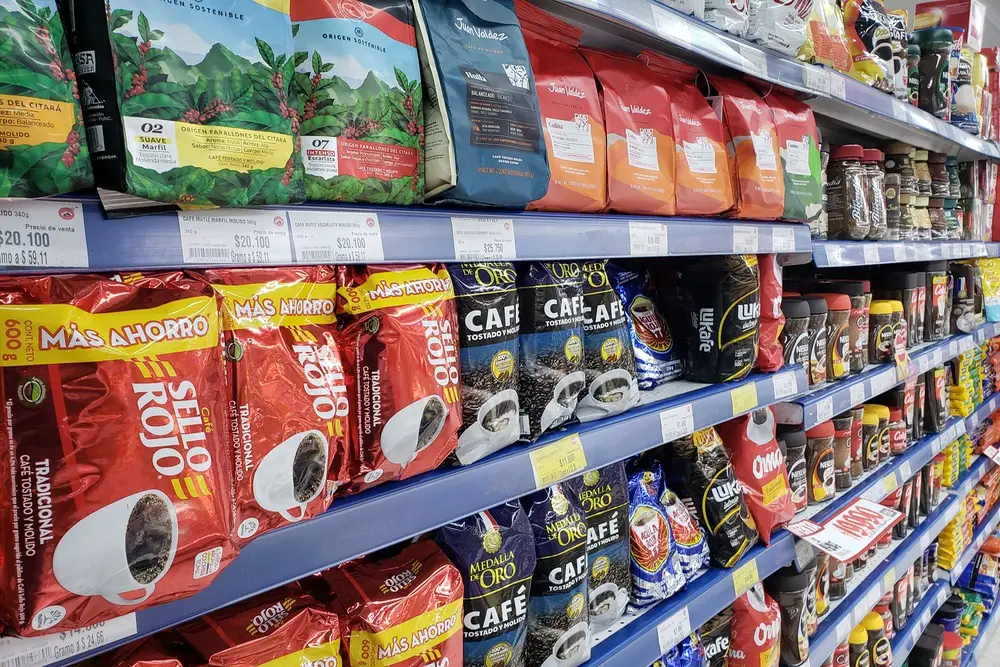With the advances in technology made around the world, the coffee society has had to adapt to new technologies and market trends, and because of this, coffee farmers have seen many changes in recent years.
Many coffee farms have launched projects aimed at automation from planting to harvesting, machines with new technologies, including the virtualization of sales through digital channels.
Table of Contents
Innovative machines for coffee production
Today, standardization is sought with machines and processes. For this reason, we will explain the importance of the different tools in coffee production for both large and small producers.
Small coffee producers
Due to the massive coffee consumption around the world, many farmers have decided to grow coffee on their farms, which has created small coffee producers.
Over the years, these farmers have faced changing consumer trends that have seen higher standards prevail. This sometimes requires special machines. Some producers did not have the economic solvency to make these investments. They were forced to grow coffee the traditional way. This achieves very good results, but not the same efficiency in comparison.
- Moisture meters and thermo-hygrometers used to measure humidity in the environment and in the bean; some roasters require a moisture content between 10% and 12%.
- Refractometer, a device used to measure the sugar in the fruit, which allows determining the degree of ripeness of the fruit and measuring it by default.
- Rain gauge, with this device you can measure the amount of rainfall, i.e. you can better estimate how often it rains in a given time, which helps to know when the crops can be harvested.
- PH meter, thanks to the pH meter (measure of acidity) you can set ideal periods for the fermentation of the bean and not exceed them, avoiding spoiling the taste of the bean and making it too acidic.
Big coffee producers
Technologies have been developed for large producers to be able to complete the harvesting and drying process more quickly because, due to the large quantities of coffee, they cannot afford to lose time due to bad weather and delay production.
Depending on the terrain where the coffee trees are, some large growers have automatic coffee pickers. However, this method has advantages and disadvantages, since this device does not distinguish between ripe and unripe cherries and an additional machine is required, which separates the cherries by size.
Depending on the terrain, this may or may not be an option, because if the terrain is hilly, this method of automation is not possible.
The final taste of the coffee is determined by many important factors, and drying is one of them. However, large manufacturers cannot let the coffee dry in the sun.
Automated coffee production chain
Technological advances have the same goal everywhere in the world, which is to make human labor easier, but in some cases these advances can replace human labor entirely.
In Brazil, one of the largest coffee producers, there were serious difficulties in finding workers to grow and harvest coffee. Because of this, the major coffee producers have been forced to find alternatives to automation. In Brazilian coffee production, the use of machines for harvesting and sorting is very common.
Automation has also reached coffee preparation, because in some countries like South Korea or Japan there are barista robots that prepare the coffee at stands. In many other countries there are coffee machines that prepare the coffee without any contact.
Automation in coffee cultivation
The automation of the entire coffee production chain brings both disadvantages and advantages. Perhaps one of the most important aspects is that automation makes many tasks, such as B. the coffee harvest, some of the jobs offered by the coffee farmers will be dismantled and changed. Pickers are replaced by machines, but trained personnel are needed again to operate the machines.
According to a 2017 study by McKinsey (a global consulting firm), it is estimated that just under 5% of all jobs worldwide can be automated. This means that while we live in a world striving for simplification in all areas, it is unlikely that new technologies will replace all of the work done by humans.
Coffee practices through technology
The workplaces of the coffee farmers are usually very far away from the big cities, since they usually stay on their farms due to their demanding work and are therefore isolated from society. In addition, the average age of coffee farmers is around 50 years. All the knowledge that coffee farmers have in their families and that has been passed down from generation to generation could be lost.
To get this information from the growers, the governments of producing countries like Colombia have developed programs to encourage interaction between coffee growers and keep them connected to each other. The exchange of knowledge is the focus here.
Thanks to the interconnectedness of the Internet, staying in touch with a community of coffee farmers is much easier than it was a few years ago.
New generation of tech-savvy coffee farmers
With the help of social networks, a new generation of coffee farmers has grown up, which is characterized by great competence both in coffee production and in the use of technical aids.
This new generation of coffee growers has the opportunity to obtain excellent quality harvests because by collecting all the information from other coffee growers through the internet they can imitate their productions and get incredible results. They even have information about market trends and can dedicate themselves to the production of specialty coffee for higher incomes.
With the right use of the Internet, they can promote their products so that potential buyers are interested in the different cultures and in this way increase their sales and generate a higher profit margin.
How websites influence coffee companies
All businesses in all sectors of the world should have websites because according to various studies and surveys, it is estimated that 80% of consumers currently research the web before purchasing a product to complete the transaction.
By using websites, the coffee producers can present their products and the growing and harvesting process to reach interested parties in many places. In addition to the website, other contact channels can also be set up so that potential buyers can clarify any questions that cannot be answered on the website.
Many people’s purchasing decisions are influenced by the comments of other buyers, because it has been shown that consumers cannot have confidence in the products offered on the Internet if there are negative comments or no comments at all.
Credibility of coffee websites
A website powered by other social networks like Instagram and Facebook gives potential buyers a sense of trust as they can see how customers are treated, relevant product information and buyer ratings.
Establishing credibility online comes with certain benefits, some of which are mentioned here.
- Unlimited Promotion: Updating your website with relevant information about your products will help keep your customers informed of your new products and offers.
- Generates leads: When we search for products we are interested in, we visit many pages: if they are attractively designed and contain a lot of accurate information, we are more likely to be interested in the products offered on that page.
- First Impression of Your Business: People who don’t know your business but know your website will have their first impression of what they see on your website. It is therefore very important that you highlight important aspects of your production, your harvesting methods, etc.
Importance of digital engagement in coffee growing regions
The internet offers a wide range of benefits and coffee farmers can learn from other farmers who are considered internet stars. On networks like TikTok, Instagram or YouTube, with a lot of effort, they managed to viralize some of their videos and reach so many people with their products and services. Even an increase in advertising from memes has been observed, which is a success on the Internet.
These strategies arouse the interest of Internet users and position the products on offer in a virtual market that is booming.
Advertising and viralization of coffee products
By using memes or topical issues, some brands can sometimes go viral on different platforms, and thanks to the increase in visits to their profiles, they can generate interactions with people and increase the flow of traffic from people who could be potential buyers.
Who is behind the coffee
Thanks to feelings and emotions, we can connect with people much more easily, and what better than coffee farmers who can convey their love for their work.
If coffee farmers are interested in sharing their daily lives through social media, they could connect with their audience and let us know about the wonderful work they do every day to bring us the best of their produce.
The consequences of exposure for some coffee farmers
Trying to get known on the internet can have two sides: a very positive one where the content goes viral, or a very negative one where we don’t reach the desired audience. This is because the algorithms with which the social networks work show us content similar to what we already see, that is, if we mainly use TikTok or Instagram to see memes or content from a series, these platforms will show us continue to show this content with a small chance of showing us something else, e.g. B. news, studies and the like.
This makes it difficult for anyone wanting to show what’s going on at their coffee farms to create the same impact on social media.
Virtualization is not for everyone
From the above information it can be deduced that it is much more difficult for farmers to find an audience on social media as agriculture is not a topic of general interest and therefore does not go viral as easily as other topics.
In addition, in some countries it is difficult to connect the companies or it is difficult for some people to speak into a camera and convey what we really want.
New business ideas via the Internet
Since the pandemic, many sectors have had the opportunity to create new businesses from the virtual world, so today we can easily find many stores that do not have a physical location and are entirely dedicated to selling over the internet with home delivery.
Sell coffee online
Selling coffee online is based on selling two main products, either specialty coffee or craft coffee beans, but the main focus is on selling coffee preparations.
Sales are usually processed through digital channels such as WhatsApp, Instagram or home delivery apps.
This business idea usually invests a lot of money in advertising on social networks as it is the only way to get known as they do not have a physical location and cannot attract the same number of people as a physical store.
Is Selling Coffee Through Apps a Good Option?
Selling your products through apps can be a great option; here is a list of positive features.
- Increase the visibility of your business as home delivery apps show people who are near your area.
- Reduction in labor costs Since you do not have a fixed address, you save on these costs, which are usually borne by the buyer.
- More sales channels: With home delivery apps you have an additional sales channel and it makes your contact work easier because you only receive the order placed.
But not everything is rosy. Here are some negative traits you can find in home delivery apps.
- You lose control over the quality of your products as you are not the one delivering them and you cannot be sure that they will arrive as they are supposed to.
- You have to pay commissions to participate in the apps and in many cases, you have to increase prices through the app to keep your business profitable.
- Bad Experiences: Many people can’t tell the difference between a restaurant and home delivery, and if the delivery service is rude, it can affect your restaurant’s rating on the app.
Coffee and its relationship to cryptocurrencies
Another business idea that has emerged in Latin America in recent years is coffee shops that accept cryptocurrencies as payment, including Bitcoin (BTC), Ethereum (ETH) and Solana (SOL).
They offer not only cafeteria service and gastronomic experiences, but also advice on investing in cryptocurrencies, and this type of business is expected to expand significantly due to the popularity of cryptocurrencies.



